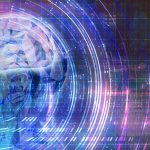Artificial intelligence (AI) has become a fundamental component in the evolution of workplaces across various industries. As organizations continue to embrace technology, AI tools are increasingly being used to enhance productivity, streamline processes, and improve decision-making. The integration of AI in the workplace is advancing rapidly, prompting questions about its impact on employment, skill requirements, and operational efficiency. This article explores these aspects of AI in workplace settings, examining how companies are adapting to this technological shift.
What Roles Does AI Play in Automating Tasks?
AI is prominently used to automate repetitive and mundane tasks, allowing human workers to focus on more complex and creative responsibilities. Automation driven by AI can handle data entry, schedule management, and customer service inquiries through chatbots. For example, AI-powered systems like RPA (Robotic Process Automation) can process invoices, approve loans, and manage supply chain logistics with minimal human intervention. This not only increases efficiency but also reduces the potential for human error.
How Is AI Changing Skill Requirements?
As AI systems take over routine tasks, there is a growing demand for employees skilled in areas like AI development, data analysis, and machine learning. Workers now need to adapt to new technologies by acquiring skills in programming and data management. A report from the World Economic Forum suggests that by 2025, half of all employees will need reskilling due to AI adoption. Companies are investing in training programs to bridge the skills gap, ensuring their workforce remains competitive in a tech-driven environment.
What Are the Implications for Employment?
The introduction of AI in the workplace has sparked concerns about job displacement. While AI can perform many tasks traditionally done by humans, it also creates new job opportunities in tech development and AI management. The McKinsey Global Institute estimates that by 2030, AI could create between 20 million and 50 million jobs worldwide, offsetting the roles it replaces. This shift emphasizes the importance of adaptability and lifelong learning in workforce strategy.
How Does AI Enhance Decision-Making?
AI’s ability to analyze vast amounts of data quickly and accurately enhances decision-making processes within organizations. Tools like predictive analytics provide insights into market trends, consumer behavior, and risk management, supporting informed business strategies. For instance, AI algorithms can predict equipment failures, allowing companies to perform maintenance proactively. This capability not only saves costs but also improves reliability and customer satisfaction.
AI-driven decision support systems are increasingly being used in financial services, healthcare, and marketing. In healthcare, AI helps in diagnosing diseases and recommending treatment plans. Similarly, in marketing, AI analyzes consumer data to tailor personalized marketing campaigns. These applications demonstrate AI’s potential to transform industries by providing data-driven strategies that enhance effectiveness and competitiveness.
Ethical considerations in AI deployment are crucial to maintaining trust and fairness. Issues such as data privacy, algorithmic bias, and transparency need careful attention. Companies must establish guidelines to ensure AI systems are used responsibly, respecting individual privacy and promoting fairness. The European Union’s General Data Protection Regulation (GDPR) serves as a framework for organizations worldwide to develop ethical AI practices.
In conclusion, AI is reshaping the workplace by automating tasks, shifting skill requirements, influencing employment trends, and enhancing decision-making. By embracing these changes, organizations can leverage AI to improve efficiency and innovation. As AI continues to evolve, the focus will increasingly be on ethical implementation and the development of a workforce equipped for a tech-centric future. The integration of AI in the workplace is a dynamic process, requiring ongoing adaptation and foresight.










